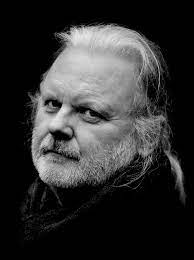Exploring the Literary Genius of Jon Fosse: Nobel Laureate Who Penned an Epic in One Sentence

Jon Fosse, a prolific Norwegian writer renowned for his exploration of birth, death, faith, and life’s elemental aspects through minimalist Nordic prose, has been honored with the prestigious Nobel Prize for Literature. The Nobel Prize committee recognized Fosse for his unparalleled ability to give voice to the unspoken, making him a trailblazing figure in the literary world. Let’s delve deeper into the world of this literary genius and his groundbreaking contributions.
Jon Fosse’s Unique Literary Journey
Fosse’s literary journey is a testament to his dedication to pure literature, unburdened by other considerations. His body of work comprises a captivating collection of enigmatic plays, stories, and novels, including a remarkable seven-book epic, masterfully composed as a single sentence. Rooted in his Norwegian heritage, Fosse’s work primarily delves into the realm of human insecurity and anxiety, touching upon the fundamental choices individuals make in life.
Anders Olsson, the chair of the Nobel literature committee, described Fosse’s works as addressing “very elemental stuff” and highlighting the complexities of human existence. Fosse’s ability to capture these profound themes has earned him recognition not only in Norway but on the global literary stage.
The Nobel Prize: A Well-Deserved Honor
For Fosse, receiving the Nobel Prize was both a surprise and a long-anticipated moment. He had spent a decade cautiously preparing himself for this monumental acknowledgment of his literary prowess. Upon receiving the news, he expressed great joy at the recognition of his dedication to literature.
Fosse’s literary portfolio is diverse, encompassing 40 plays, novels, short stories, children’s books, poetry, and essays. The Swedish Academy, responsible for awarding the Nobel Prize, acknowledged him “for his innovative plays and prose, which give voice to the unsayable.” This recognition solidifies Fosse’s position as a literary luminary whose work transcends boundaries and challenges conventions.
Influences and Literary Style
Fosse attributes his sparse, minimalist writing style to the influence of Irish writer Samuel Beckett, the 1969 Nobel laureate in literature. Beckett’s bleak and enigmatic works left an indelible mark on Fosse’s approach to storytelling, emphasizing the power of understatement and subtlety in literature.
Edmund Austigard, the executive officer of Fosse’s publisher, Samlaget, characterizes Fosse’s literature as “slow writing and reading literature.” It is not the kind of literature meant for a casual read at the beach but an immersive experience that invites readers into a unique world, encouraging them to linger and savor every word.
Nynorsk Language: A Historic Milestone
Jon Fosse’s Nobel Prize win carries added significance because he is the first Norwegian writer in nearly a century to receive this honor. Notably, Fosse writes in Nynorsk, one of the two official written versions of the Norwegian language. While Nynorsk is used by only a minority, accounting for around 10% of Norway’s 5.4 million people, it remains fully understandable to users of the other written form, Bokmaal.
Guy Puzey, a senior lecturer in Scandinavian Studies at the University of Edinburgh, highlights the divide between the two written forms. Bokmaal is regarded as the language of power and urban centers, while Nynorsk finds its stronghold in rural western Norway. Fosse’s Nobel Prize victory is a significant milestone for the Nynorsk language and literature, affirming its cultural importance.
Lubna Jaffery, Norway’s culture minister, described it as “a historic day for the Nynorsk language and Nynorsk literature,” underlining the enduring impact of Fosse’s contributions.
Legacy and Recognition
Jon Fosse’s literary legacy and contribution to Norwegian culture are undeniable. In 2011, he was granted an honorary residence in the grounds of the Royal Palace, a testament to the profound impact of his work on the cultural landscape of Norway. Fosse’s ability to breathe life into the unsayable and explore the depths of human existence through his unique literary style cements his status as a literary giant and a worthy recipient of the Nobel Prize for Literature.
In conclusion, Jon Fosse’s Nobel Prize win not only celebrates his remarkable achievements but also shines a spotlight on the enduring power of literature to capture the essence of the human experience. His unique approach to storytelling and dedication to the art of pure literature have left an indelible mark on the world of letters, making him a deserving laureate of the highest literary honor





